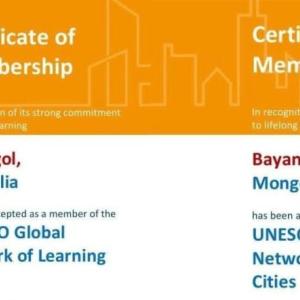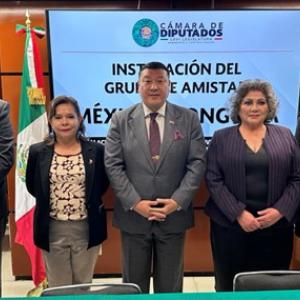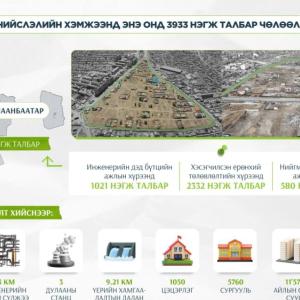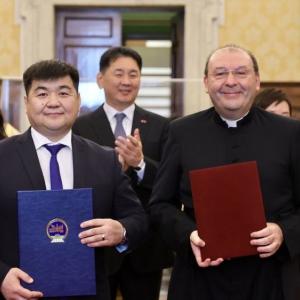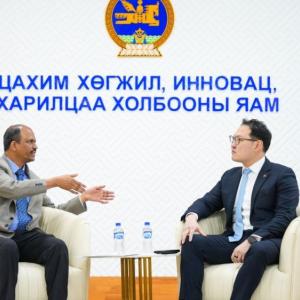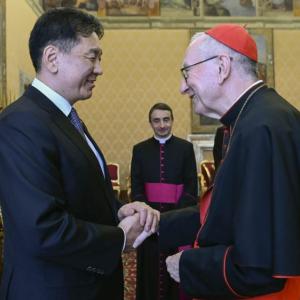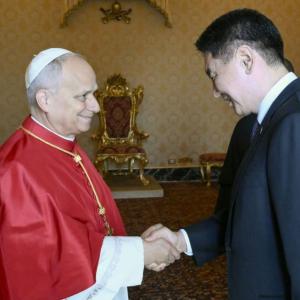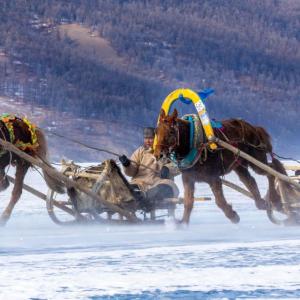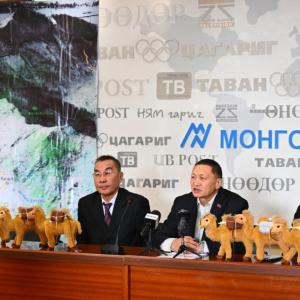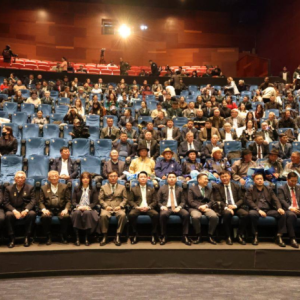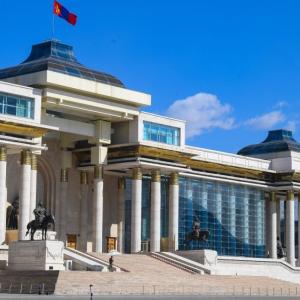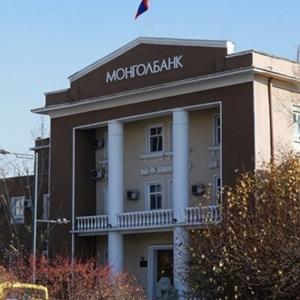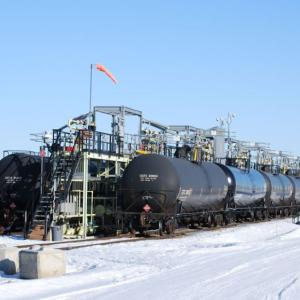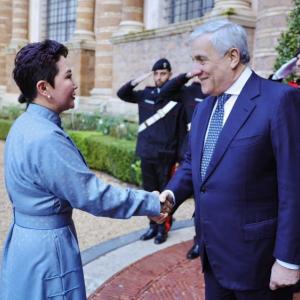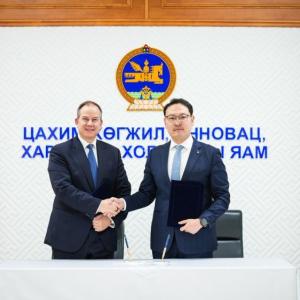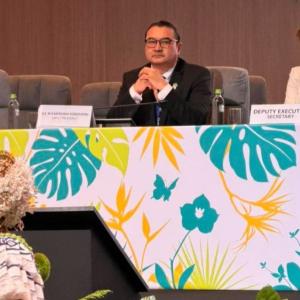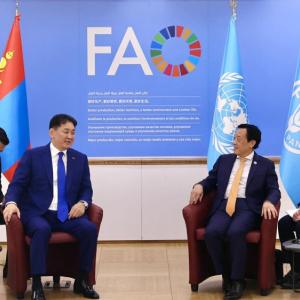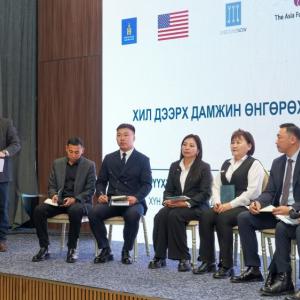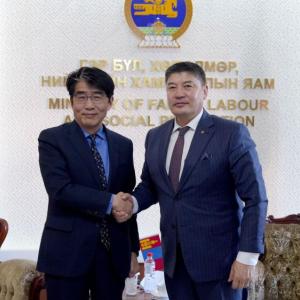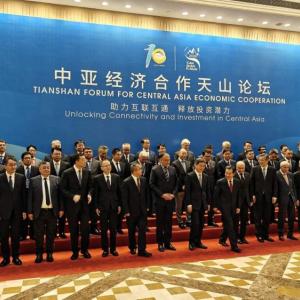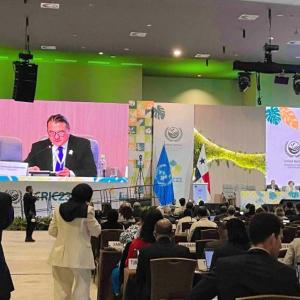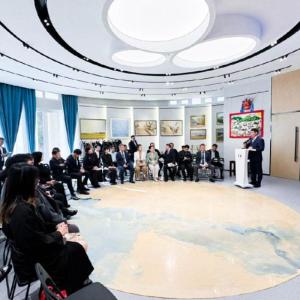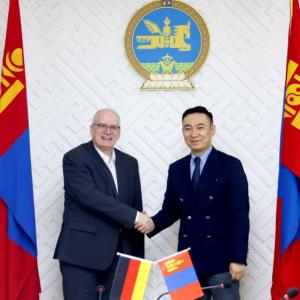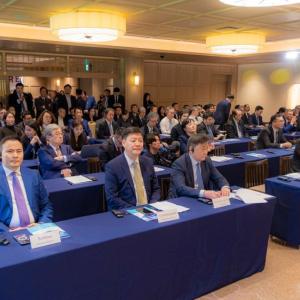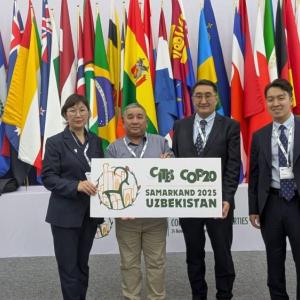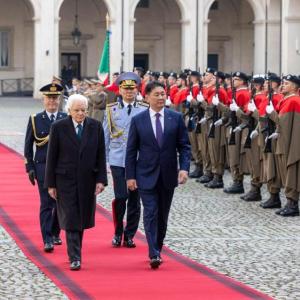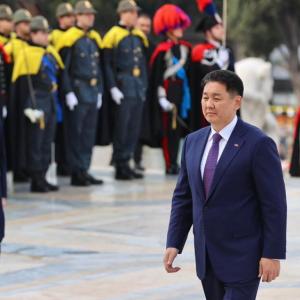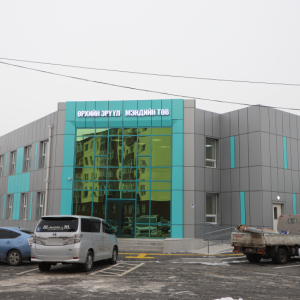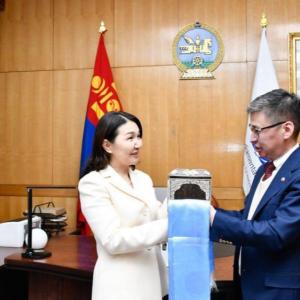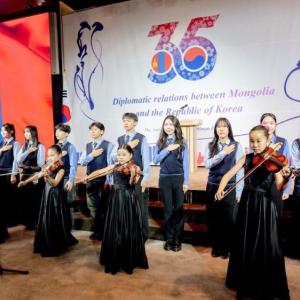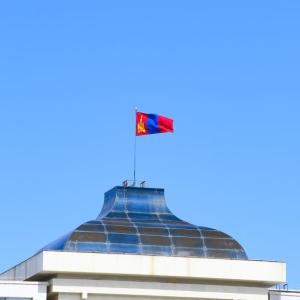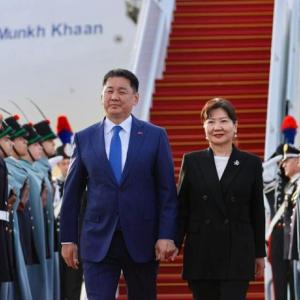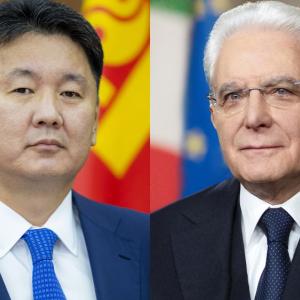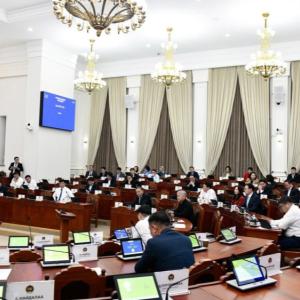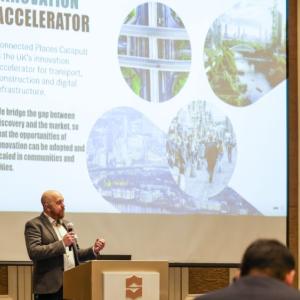Amendment to the Constitution or revised social contract
The Mongol Messenger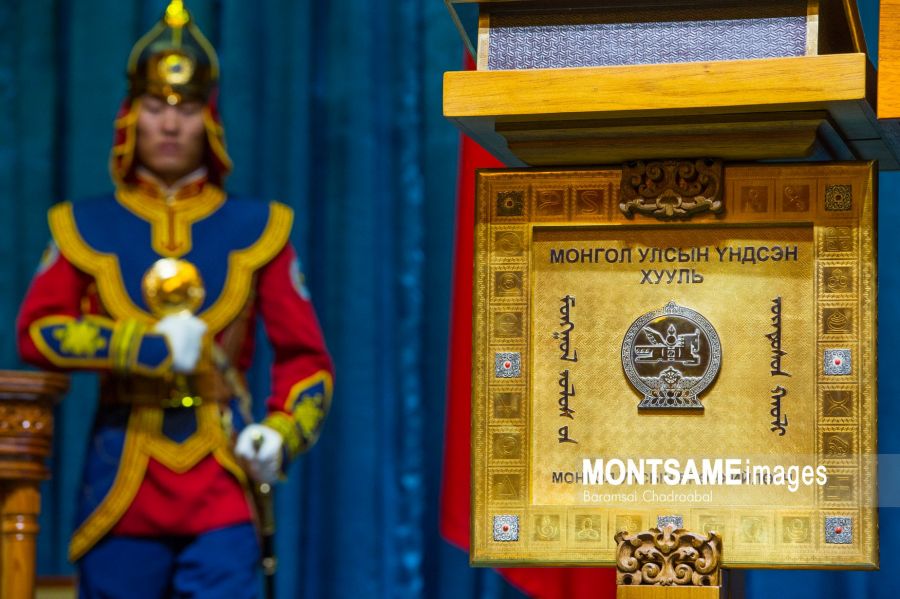
Ulaanbaatar /MONTSAME/. The amendment to the Constitution of Mongolia, which was adopted by the Mongolian Parliament – State Great Khural on November 14, 2019, entered into force nationwide at 12.00 AM on May 25, 2020, or at the hour of Horse of the third day of the first summer month of the year of Metal Rat of the Seventeenth 60-year Cycle by the Mongolian calendar.
After Mongolia made a transition to democracy, the 430-member People’s Great Khural (Ardiin Ikh Khural) discussed the bill on the new Constitution with chief architect professor B.Chimid for 76 days to finally approve on January 13, 1992.
Professor Chimid highlighted that the new Constitution that set out the principles of independence and democracy for the state and of freedom, and equality for the citizens is tailored to suit the period of social transition and there will be an indispensable need that arises to revision it in later days.
Confirming his words, several proposals have been considered to amend the Constitution in correspondence with the needs and social requirements of that time, and seven changes were made to the Constitution in 2000, which unfortunately regarded as “seven changes that made the original version worse”.
Since then, a working group to develop amendment bill was formed seven times between 2008 and 2019, and submitted amendments to the parliament in 2011, 2012 and 2015. However, discussion on the legislative level has never taken place. The latest version of amendments to the Constitution was presented by 63 parliament members headed by MP D.Lundeejantsan on June 6, 2019. 36 series of debates on the parliamentarian plenary and standing committee sessions on the bill continued for 105.9 hours and the amendment was approved on November 14, 2019.
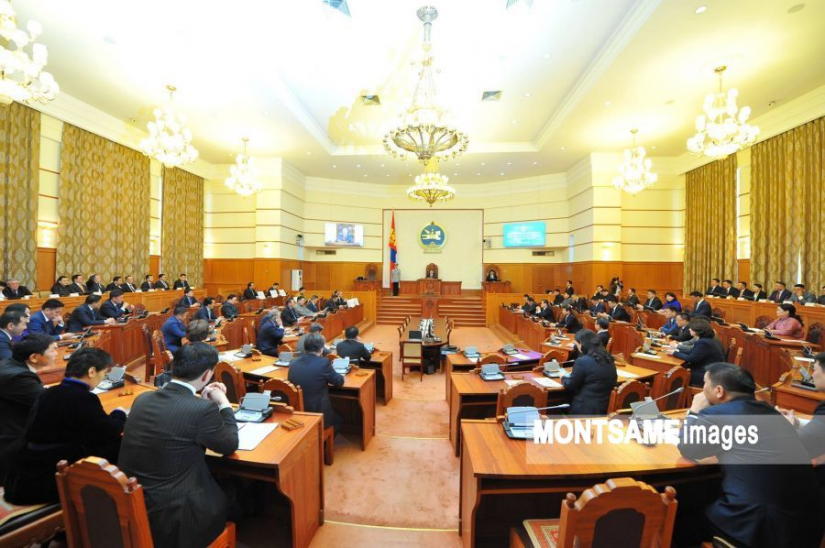
The amendment, which touched on around 28.5 percent of the contents in the Constitution or 70 articles and 36 clauses, is deemed to have maintained the control and balance of governance, increasing the government stability and accountability of the parliament and also aims to strengthen the independence of the local governance and to improve six of the seven changes of 2000.
When approving the amendment, the current parliament was guided by an idea pronounced by former Parliament Speaker D.Demberel in 2010 at a parliamentary session - “The Constitution is the social contract in favor of the prosperity of the peoples.” This was clearly seen throughout the whole process from formulating the document until the approval.
The parliament members held a series of discussions to introduce the draft amendment to the public in Ulaanbaatar city and 21 aimags of the country and received a total of 306 thousand inputs from the citizens. More than 600 proposals were put forward by government and nongovernmental organizations and scholars during the extending debates at the State House.
A ‘concession’ team to consolidate the bill submitted by the parliament members and proposals submitted by the President of Mongolia was set up with President Kh.Battulga as a head. The team convened seven times and organized five discussions.
The amendment to the Constitution was made in four different areas to reinforce parliamentary system and governance, executive power and enhance the accountability and independence of judicial systems and of local governance system.
Resources and the Future
Mongolia, that has abundant natural resources including gold, copper, coal, and oil, and 70 million head of livestock, has been considered to be subject to resource curse in recent years for failing to leverage its natural resources, equitably distribute wealth to its people, and carry out rehabilitation and other apparent reasons. Therefore, a constitutional amendment added details to the Article 6.2 of the Constitution that reads, “The land, except those given to the citizens of Mongolia for private possession, as well as the subsoil with its mineral wealth, forest, water resources and wildlife shall be the property of the State.”
More specifically, the Article 6.2 now reads, “The land, except those given to the citizens of Mongolia for private possession, as well as the subsoil with its mineral wealth, forest, water resources and wildlife shall be the property of the State. In compliance with the country’s long term development policy, the State Natural Resource Exploitation Policy shall aim to ensure citizens’ right to healthy and safe environment and equitably distribute wealth through the Sovereign Wealth Fund.” The practice of exploiting natural resources without one policy will stop with the implementation of the government’s long-term development policy. The constitutional amendment also requires not harming the ecosystem when exploiting natural resources as a big step in preserving the wilderness and wildlife in the country.
Rights and accountability of the Parliament
The amendment to the Constitution, which put an end to a many years of debate, was a step that shall be recorded in the history of the current Parliament. Parliaments since the transition to democracy had had a ‘not good’ reputation among citizens. That’s why an issue of the necessity to make a parliamentary reform decisively and ensure people’s right to govern was on the agenda for many years. Even this was stressed by the Speaker of the Parliament G.Zandanshatar in his speech at the parliament session in March last year. The latest Constitutional amendment aims at improving the discipline and accountability of the Parliament, thus has amended ten articles. For instance, changes to many articles were made, such as lengthening the duration of a regular session of the Parliament to 75 days from 50 and resolving any issue on the principle of the majority as well as setting the limits on the rights and obligations of law initiators.
Of them, the most notable one was about the early dissolution of the Parliament and the recall of members of the Parliament. In the past, a Member of the Parliament was recalled only in case his/her criminal conviction has been proven at the court. This time, however, a provision on recalling the MP in case he or she violates their oath of office and the Constitution was added. By doing so, it is believed to make MPs to be loyal to their oaths, hold the interest of the people and the country in high regard, and to avoid ethical mistakes.
There were several cases of taking a long time not to appoint the next Prime Minister due to the conflicts of interest between politicians and political parties after the parliamentary elections or the dissolution of the Cabinet. This seemingly ‘normal phenomenon’ in politics has been the main reason for the slowdown of the country's socio-economic development policy. For example, it took five months to appoint the next Prime Minister after the Government resigned on July 24, 1998. To rectify this mistake, the Constitutional amendment states that the Parliament shall appoint a successor within 30 days since the Prime Minister’s resignation, or if not, the President shall issue a resolution to dissolve the Parliament.
When the annual state budget is approved, MPs add significant expenditures by adjusting the government-submitted state budget, for construction works and other purposes in their constituencies. As a result, the budget deficit is estimated at trillions, and the country often undergoes economic difficulties. Therefore, the latest amendment to the Constitution includes a regulation not to increase the expenditure and deficiency of the state budget, submitted by the government. This is a leverage for both the Government and the Parliament to be responsible in formulating and approving the state budget.
Moreover, there is a regulation not to amend the Law on Parliamentary Elections in a year before the regular election. As well, a threshold of forming a political party was raised. In Mongolia, there are currently 34 political parties except for some including Mongolian National Renaissance, Mongolian Central Party as well as others that have applied for registration.
Previously, signatures of 801 members had to be collected when the political party applies for state registration. According to the latest amendment, a unification of more than one percent of eligible voters, who are over the age of 18, of the population may form a political party.
During the discussion ‘Pressing issues in creating voters’ list based on their address registration’, Chairman of General Authority for State Registration B.Baasandorj said, “There are 2,114,939 eligible voters in Mongolia.” Specifically, now it is necessary to collect 21,150 signatures for the state registration when forming a new political party. It is a significant step towards raising the threshold to form the political party. The Constitution also stipulates that the party's income sources and expenditures must be transparent to the public.
Power of Prime Minister and stable government
The government, who defines and implements the core policy of the country’s socio-economic development, must be stable. However, there have been 14 governments throughout the last six parliaments in Mongolia. As for the Federal Republic of Germany, Chancellor Angela Merkel has been heading the government since 2015. Thus, it is crucial for the Mongolian government to be stable, with the policies being developed for long-term as per the model examples of other countries, highlighted Speaker G.Zandanshatar at a TV debate ‘DeFacto’ during his time as the Head of the Cabinet Secretariat of the Government in 2018. The second largest matter of the constitutional amendment is also geared towards expanding the powers of executive governance.
The policy and operations of the government are monitored by the State Great Khural. However, the Government has come to mostly consist of MPs. In other words, their work is being monitored by none other than themselves. As a result, the proper system of monitoring and liability is being lost. Therefore, there have been appropriate changes to Article 39.1 of the Constitution, which now allows only Prime Minister and up to 4 members of the government to hold the position of parliament member concurrently.
When Prime Minister formed his cabinet, the appointment of government members was consulted with the President and they were appointed after sending the nominations to the Parliament. However, some criticized that the procedure led the cabinet members to blindly follow the words of the parliament members instead of working for the interest of the country and its people. There was also criticism to the Government of having insufficient core policy and being indecisive. Thus, appropriate regulations have been added to the Constitution that enables the Prime Minister to appoint and dismiss his cabinet members on his own. Then the cabinet members shall swear to the Parliament. Regulations have also been set on the cabinet resigning entirely in the case of the Prime Minister’s resignation, which makes it a requirement for the ministers to have a united goal, to be responsible, and to properly operate as a cabinet.
According to the previous version of the Constitution, a citizen elected as the President was allowed to be elected for another term. As a result, the President became too politicized and it was in their interest to cause obstacles in the operations of the Parliament and the Government. However, the new Constitutional amendment now regulates for only one presidential term of 6 years to be allowed for an indigenous citizen of Mongolia over the age of 55 years that had permanently resided in the country for at least the past five years. The new change is expected to stop any actions from the President supporting the narrow interests of certain political parties or groups in order to be re-elected. However, the amendment to the article will come into effect from 2025. The implementation period was postponed so as to not restrict the current President’s right to be re-elected.
Judicial power and independence
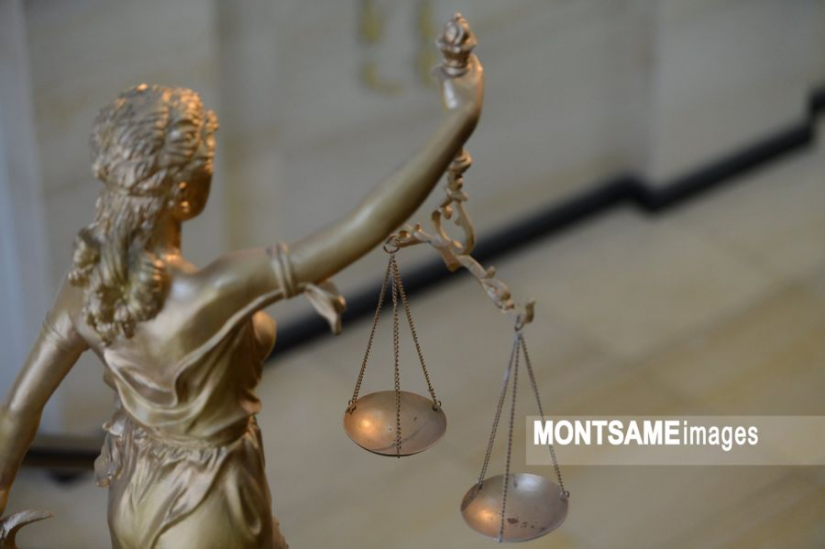
Both citizens and MPs say that judicial independence has been lost in Mongolia, replaced by a group of people who make decision for the interest of certain communities. The main officials, who undertook duty to ensure citizens’ rights and freedom and impose appropriate penalty for criminals and lawbreakers, are committing crimes themselves. A clear example of these events is an issue related with over 10 judges, who are under investigation for receiving bribes when resolving the case of Salkhit silver deposit, which caused a scandal last year. Therefore, with views to enable judges to work independently and protect them in the first place, changes on the structure and organization of the Judicial General Council have been made in the Constitution.
It is apparent that the matter of their accountability should be on agenda along with the protection of their interests. Therefore, an article on setting up Disciplinary Committee of Court to charge judges who violated laws or disciplinary and ethical rules has been added. In addition, a change was made that enables the court to be established under circumferential principle in order to bring judicial services closer to the people and make it more accessible.
Issues around local government rights and city status
Fifty percent of the Mongolia's population lives in Ulaanbaatar, the capital city. The key to the decentralization of the city and development of a settled civilization is to develop other aimag centers. The issue of developing relatively densely populated areas such as Darkhan and Erdenet with the status of cities has been discussed for many years, but no definite solution has been reached so far. However, the amendment created the basic conditions to give the status of a city to not only Darkhan and Erdenet but all other aimag centers.

Subsequently, the Parliamentarian process of making decisions on administrative and territorial changes, which was formerly decided based on the decisions and opinions of local khurals and citizens, was simplified. In particular, the State Great Khural will make a decision to change the administration and territory only on the basis of citizens' opinions which submitted by the Government. In addition, the Constitution stipulates that aimag, capital city, soum, and Citizen’s Representatives’ Khural have the right to manage property and set tax rates within the limits set by law. This provides an opportunity to improve local economic independence.

President Kh.Battulga emphasized that the current parliament has played a historic role in fulfilling the ‘social order’ to a certain extent by approving the Constitutional amendment that has been discussed for many years. The Constitutional amendment was endorsed on November 26, 2019, on the occasion of the 95th anniversary of the adoption of the first Constitution, and the proclamation of the Mongolian People’s Republic.
It is important for the State Great Khural and the Government to bring other laws and regulations in line with the Constitutional amendment. Therefore, the resolution on “Measures to be taken in connection with the amendment to the Constitution of Mongolia” was ratified. According to the resolution, more than 40 laws will be brought into line with the Constitution. For example, 22 laws including the Law on State Fund of Treasury, the Law on Development Policy and Planning, the Law on State Audit, the Law on the State Great Khural, the Law on Political Parties, and the Law on the Financing of Political Party must be drafted or amended to build parliamentary democracy and ensure the people's right to govern.
Within the framework of amendments related to the executive power, the revised Law on the Government of Mongolia, the draft Law on the President of Mongolia, and in the sphere of amendment related to ensuring judicial independence and increasing judges' responsibility, the draft law on the Judicial Disciplinary Committee, the revised draft of the Law on Judicial Administration and amendments to other relevant laws shall be ratified.
As for the amendments related to strengthening local governance, 7 bills including the Law on Administrative and Territorial Units and Their Management, the Law on the Legal Status of Cities and Villages, the Law on the Legal Status of the Capital City (revised version), the Law on State and Local Property, and the Law on Budget must be drafted or amended.
Among them, the State Great Khural has approved the Law on the State Great Khural, the Law on the Rules of Procedure of the State Great Khural, the Law on the Government, the Law on State Audit, and the Law on Development Policy and Planning before adjourning the spring session of 2020.
Ch.Ariunbold
 Ulaanbaatar
Ulaanbaatar






